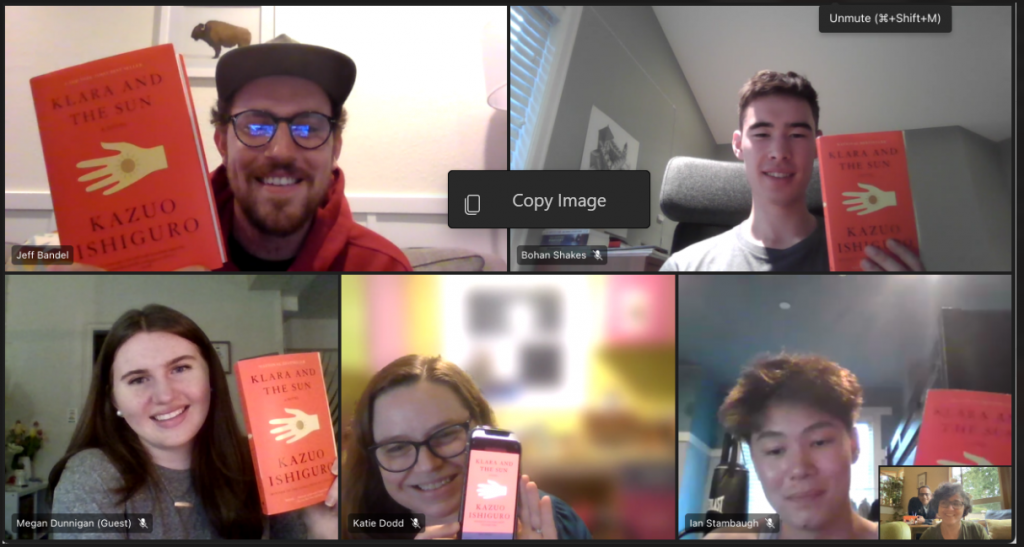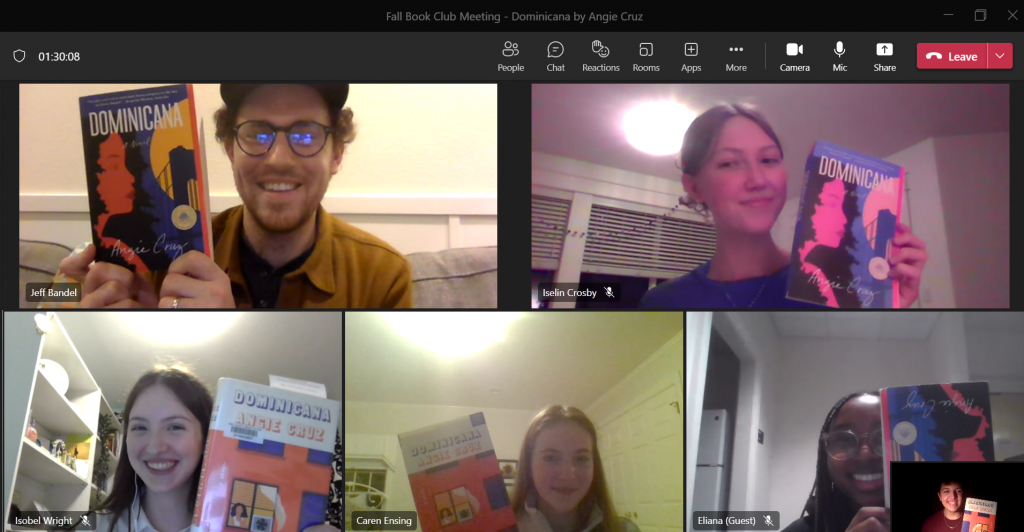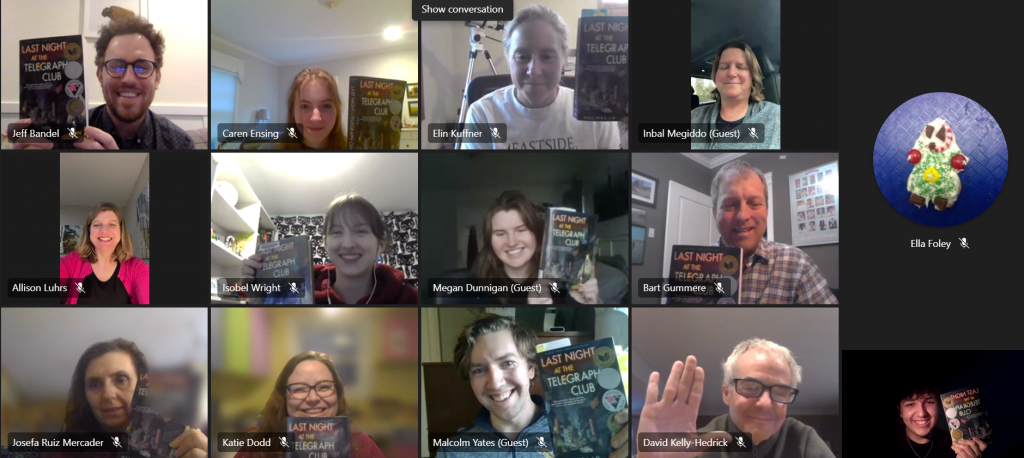Collegial Dynamics
I have been very fortunate to continuously find myself in communities with intelligent, creative, and passionate people. Working previously in Title I charter schools, the burnout rate made the faculty feel like a revolving door with my school in Houston, TX going through a ~50% turnover every couple of years. My school in Denver, CO was able to keep a core group of people much longer, but still by my 5th year I was the 7th most tenured person in the classroom out of 36 faculty members. One of the biggest draws to EPS for me was the fact that such a significant portion of the faculty had 16+ years of teaching experience and had been at EPS for several years. Not only did EPS seem like an incredible place to teach, selfishly, it appeared to offer an opportunity to continue to develop and grow my practice.
Some of my most enjoyable moments in my 10 years of teaching have been when collaborating with my colleagues at EPS. Whether it be planning and orchestrating interdisciplinary projects with Stephen Keedy, Verity Sayles, or Elena Olsen and Jenn Boyden; bringing different expertise and teaching styles together as a history duo with Wen Yu Ho, Bess McKinney, Cait McLane, or Sammy Shaw; or leading teenagers with varying bike riding abilities through the Moab sandstone with Kelly Violette and Jack Nolan– I am continuously grateful for and in awe of the people I work with.
(1) develops mutually respectful and productive relationships with colleagues
This indicator seems best introduced by my colleagues themselves:
In a survey sent to colleagues in preparation for my PDP, Adam Waltzer responded:
Jeff is an excellent colleague and office mate. Conversations with him on topics ranging from assessment to course content have made me a better teacher. I also have the opportunity to observe him mentoring a new teacher. Beyond EPS conventions and pedagogy, Jeff has made this new teacher feel at home and productive.
Elena Olsen responded:
As per the “positive ambassador” question above, Jeff is seemingly never too busy, tired, or in-a-bad-mood enough to not take the time to develop productive relationships with colleagues. If anything, I wish I had been able to work more closely with him this fall–when I was more than usually busy with the college counseling side of my job–because I know how rewarding it is to continue to build that collaborative relationship with him. And on a smaller scale, it’s always a good start to the day to chat with him in the breakfast line, or at a happy hour.
David Kelly-Hedrick responded:
Just a great person to eat lunch with and Jeff always ask questions about you or your life and genuinely wants to know the answers.
(2) partners consistently with colleagues on projects (i.e., integration, service learning)
The emphasis on collaboration was one of the biggest draws to EPS for me. Every opportunity I have had to partner with another teacher, it has improved my practice. Whether it be working with Cait McLane and Sammy Shaw on US History and having to make different teaching styles work or creating interdisciplinary projects in Origins with Verity Sayles, I always come away from planning meetings and the implementation of our collaborative efforts better in some form. I get to see new ideas and perspectives in practice, think about the classroom in a different way, and problem solve.
One of my favorite aspects of teaching history at EPS has been the coupled history and literature courses. I’ve always tried to make it a point of emphasis to at least do one interdisciplinary project per course. Stephen Keedy and I were able to develop a final project that captured the essence of both of our courses in our 2019 Latin American final. It was a 3-hour, double block final in which students had three different projects: 1) An artifact from the pre-colonial era for their country of study, 2) a visual to represent the process of gaining independence within their country of study, and 3) a digital format (video, podcasts, etc.) to present on a contemporary issue within their country of study. Students split their time stationed at their projects and moving around the room in a gallery walk format to gather notes and do comparative work.


At various intermissions, we gathered students in fishbowl discussions to debrief what they had learned from one another and the particulars of these various countries to try and answer: What was the historical process in creation of Latin American identity and what defines Latin American identity today?
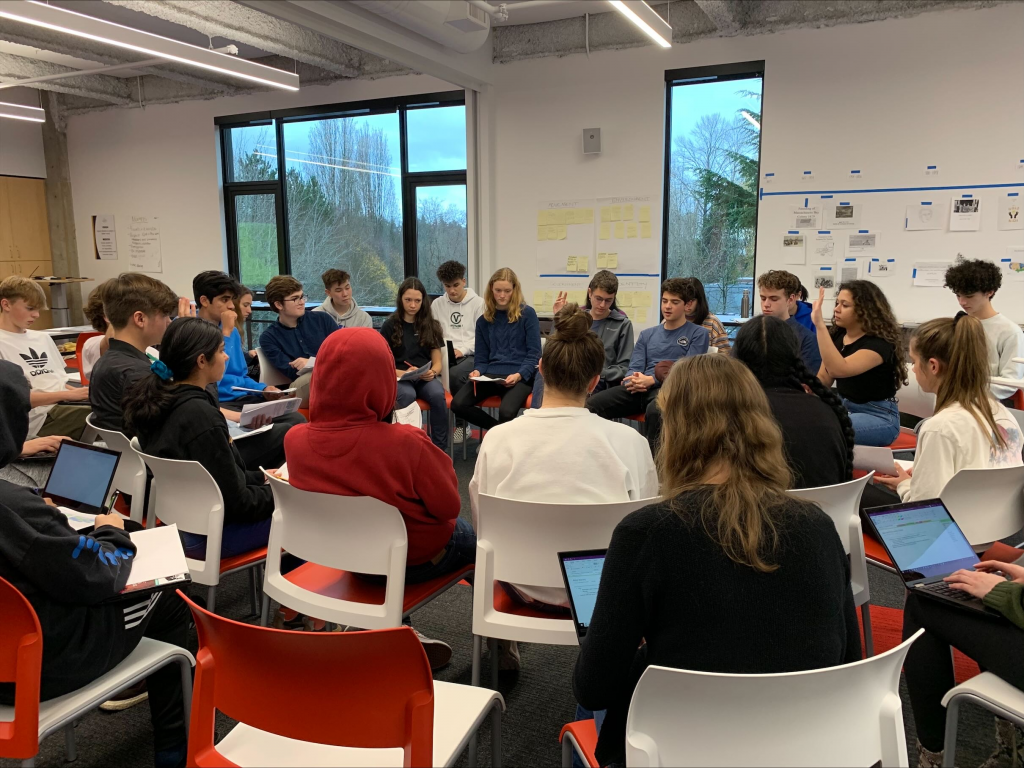
Verity Sayles and I really tried to bring Mesopotamia and Ancient Greece to life in our Origins course. Each major assessment was designed to answer the essential questions of the course: What are the origins of human civilization and what stories were created in the process? In our first module on Mesopotamia, students selected a law from Hammurabi’s Code and constructed a myth using the steps of the hero’s journey about the genesis of that particular law. In our second module, students, adorned in togas, had to participate in an Athenian public forum as concerned citizens and orators advocating for what it means to be a good leader utilizing ethos, logos, and pathos and referencing Greek philosophers.

In a PDP survey response, Sam Uzwack said: While teaching in an adjacent classroom to Jeff last year, I always appreciated when he and Verity would bring their humanities classes together, open up the wall, and blend the students. This kind of instruction takes time to plan and great intentionality, so I was so excited to see it happening.
I am also back on the US History team this year with Caitlin McLane and Sammy Shaw, which has been a fantastic group to collaborate with.
On the PDP survey, Caitlin responded:
You are always open to collaborating, revising, improving, creating, etc. when it comes to the courses we co-teach. You are communicative, responsive, and always willing to share the workload.
I’ve worked with Kelly Violette and Jack Nolan on two EBC mountain biking trips. I’ve learned so much from them both. I never got to chaperone an EBC trip prior to planning one myself due to Covid (fingers crossed for Italy in the future!). Both Kelly and Jack were instrumental in rounding this idea into form. Kelly brought her logistical wizardry and Jack helped me get out of a penny-pinching mindset so the trip could be the best trip possible.
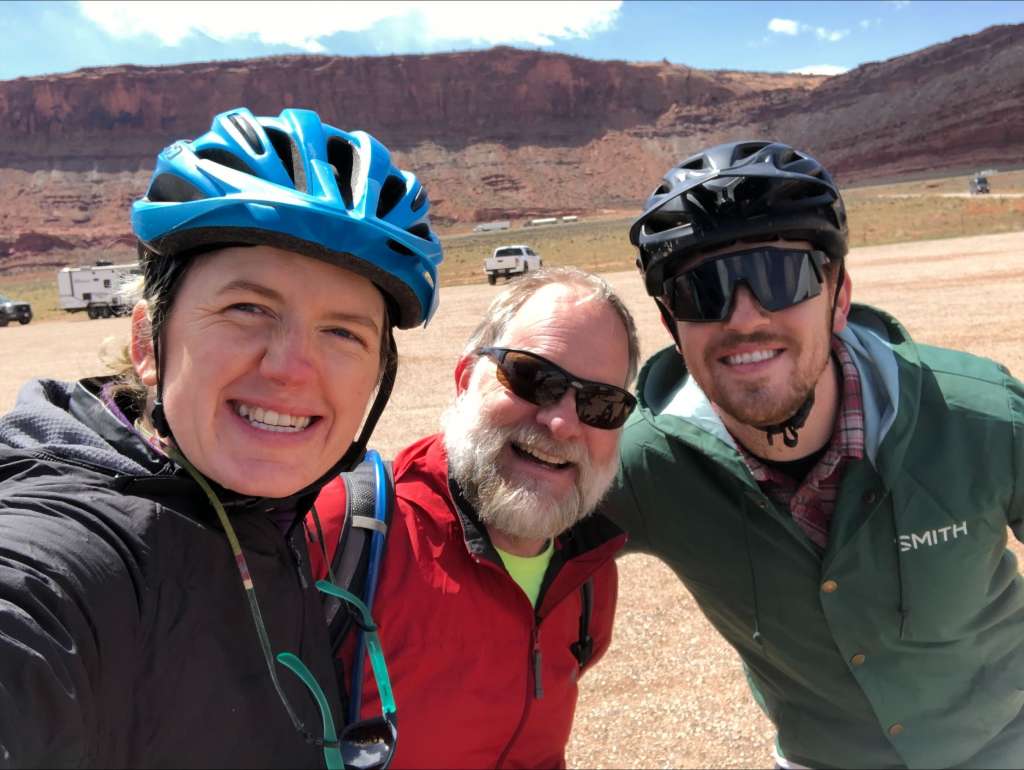
On a PDP Survey, Kelly Violette responded: Jeff and I have partnered (along with Jack Nolan) on EBC the last couple of years. As the trip leader both times around, Jeff took on the lion’s share of the administrative/grunt work associated with the trip, including fielding parent questions, managing paperwork, arranging transportation/lodging/guides, prepping for student meetings, etc. In Year 2 of our collaboration, Jack and I convinced Jeff to let us take *a little* of the work off his plate, but Jeff still definitely did the bulk of it. Throughout each trip, it was a pleasure to team up with Jeff – it was easy to work together to make decisions, modify the plans as needed, and respond to each situation that arose while on the trip. We had so much fun collaborating in 2021 and 2022 we attempted a repeat for 2023 but chaperone needs mean we’ll be elsewhere.
On a PDP survey, David Kelly-Hedrick responds: Jeff was awesome lead and great colleague for the Moab biking trip with Kelly V and Jack N, so much so that they all wanted and were willing to recreate a brand new EBC mountain biking adventure for 2023. He is true to his word and just naturally radiates a positive, upbeatness that is contagious and positively affecting.
I was honored to serve on Anne Duffy’s PDP team in 2021-2022. At the time, Anne was not someone I knew particularly well, but already had great admiration and respect for. While the PDP was this nebulous program to me initially, I gained so much from the experience and the committee I was a part of. Thinking through the classroom from a science lens pushed me out of solely thinking about teaching within a history classroom. There are ideas like Anne’s lab contract that I still think about how to adapt for my history class every couple of months. Furthermore, Anne and I were able to form one of the most valuable friendships during this experience. She was very candid with me about her experience going through the PDP, which helped prepare me for this experience, and has been proactive in supporting me as my facilitator this year.
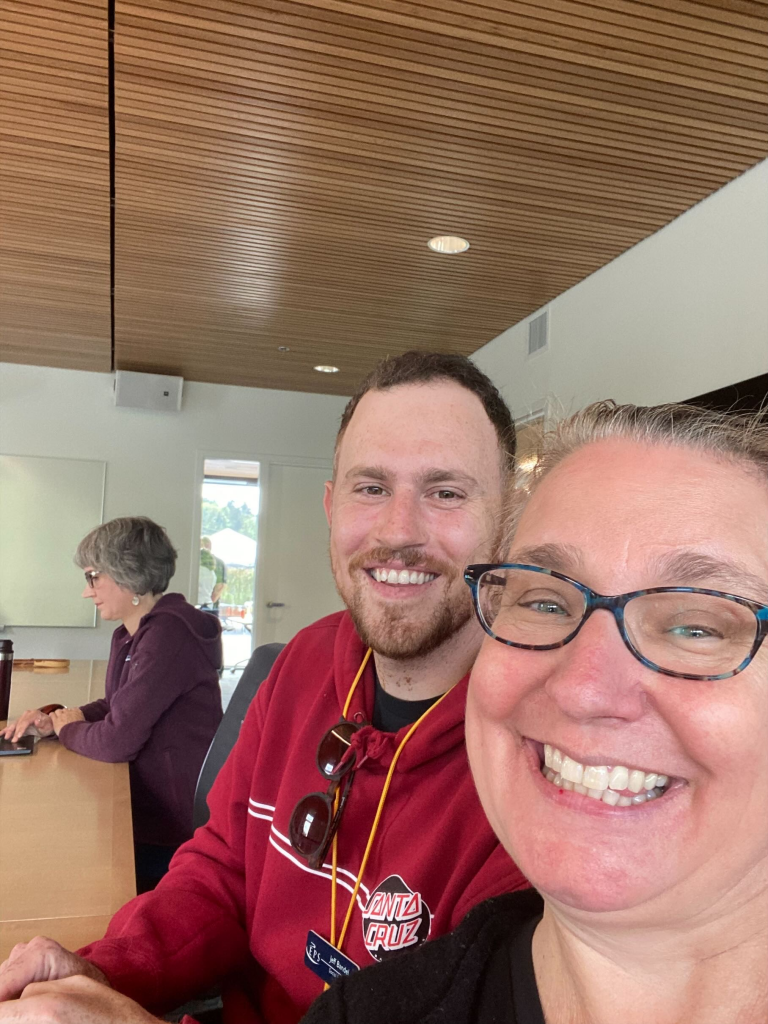
This year, I have been serving as Alex Langer’s mentor. It has been an easy professional and friendly relationship to form due to our shared love for history, Colorado connection, & Mariner fanaticism. Alex stood out to me as a candidate because of his humility in recognizing there would be an adjustment transitioning from the post-secondary level to teaching high school. We’ve met formally and informally to see how his overall experience has been, clarify expectations and norms at EPS, and provide various activities and lesson plans he could incorporate into his pedagogy.
I view the mentor program as vital to our community and an investment in the people we hire. After working at schools that had high rates of turnover, I am very familiar with the exhaustion of constantly onboarding and scrambling to hire good teachers. One of my professors in my Master’s program bluntly stated, ” You won’t be good at this until year three and by year five you will finally feel like you are on a roll.” Teachers are more often than not achievers themselves and the difficulty of what this profession entails might be the first time someone has really struggled at something. Equipped with this insight, I began my career by identifying and then leveraging my strengths while simultaneously identifying one or two things I would like to work on at a time. This long term forecast allowed me to persevere and develop the endurance necessary for the ups and downs of a school year. It is my intention to mentor in this way–step-by-step.

In a PDP survey, Sam Uzwack responded: Jeff has served as a mentor to new faculty on a couple of occasions, and takes the role very seriously. I appreciate how Jeff is not only available to our new folks, but also thinks deeply about how the overall mentor program could improve.
And from my mentee himself: Jeff has been a godsend this year. From the first day of my employment (and even before) he has served as a mentor; inviting me to sit with him at lunch, being on hand to discuss teaching or grading or work-life balance, and has helped me integrate well with the EPS community.
(3) engages in collegial activities hosted by the school
I never take for granted the motley crew of people I work with. There is a wide array of personalities, hobbies, life stories, interests, and senses of humor. There is a wealth of life experience across the board and it makes hanging out all the more interesting. It’s the rich Seattle knowledge of Kelly Violette, Michael Graybeal rapping over a Biggie Smalls track, baseball insights of Bart Gummere, discussing the peak of indie rock from 2003-2011 with Sam Uzwack and Verity Sayles, the renaissance man Wen Yu Ho, whatever is on the mind of Adam Kruger, our very own Prefontaine in Ted Scott, debriefing Nashville with Mike Anderson, mountain biking with John Stegeman, swapping stories from the trenches with Anne Duffy, home owner advice from Kip Wassink, feeling the highs and lows of Seattle Mariner baseball with Alex Langer, mixology tips and tricks from Karen Mills, our very own Ohio representative Elizabeth Anderson, tracking Aaron Judge’s pursuit of 62 with Cait McLane, and countless other conversations. Happy hour, trivia night, wine club, baseball games, holiday parties, and end of year celebrations are never a dull moment with this cast of characters!
In the absence of the legendary Adrienne Behrmann, John Kaminsky, Anne Duffy, and I formed a committee to continue organizing opportunities for people to connect outside of work. We’ve put together a few happy hours as well as a trivia night hosted by the one and only Adrienne herself. It’s important to maintain this key component of our adult community–to socialize, to build comradery, invite new hires in, and be there when we are exhausted and need to refill our cup figuratively and literally.
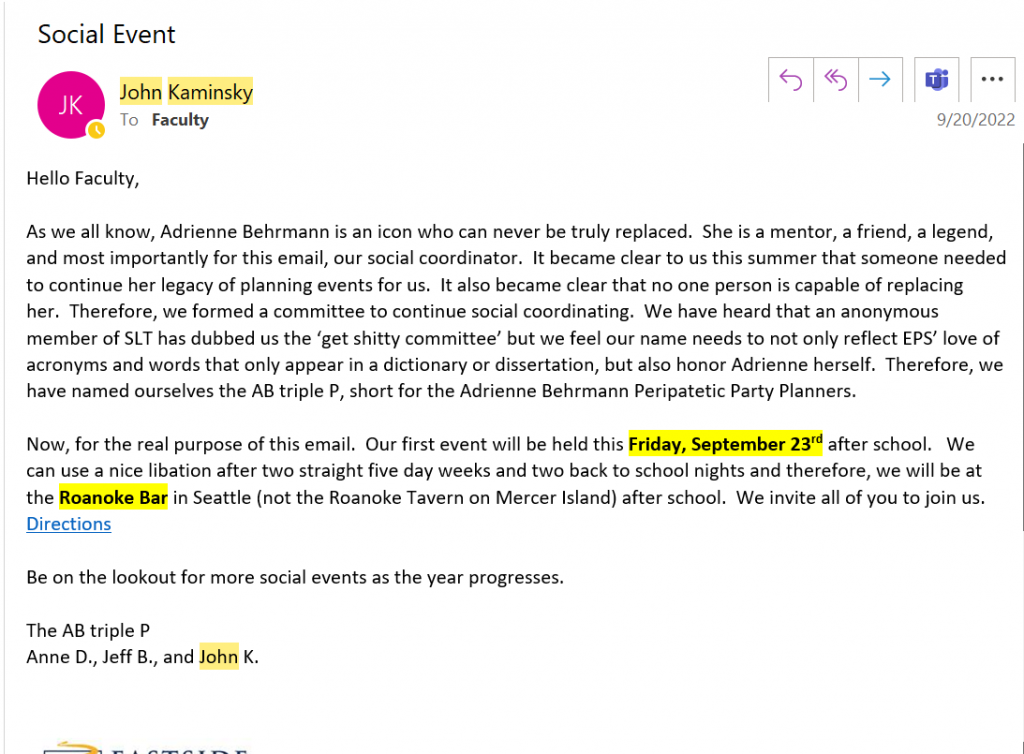
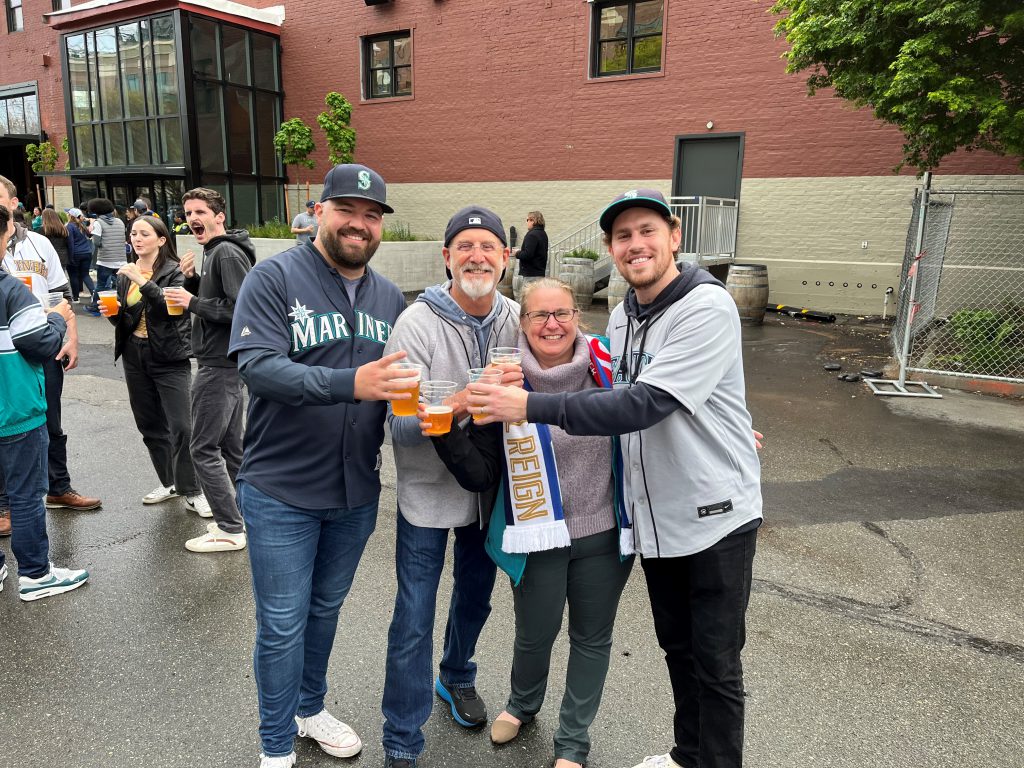
Community Membership & Support
When I first visited Eastside Preparatory School in April of 2019, I almost did not make it. Denver was experiencing a bomb cyclone with category 4 hurricane like winds and my flight was originally cancelled. After hundreds, if not thousands, of flights were grounded, my flight somehow was upgraded to delayed. I arrived at the Heathman Hotel in Kirkland around 1:30 am, got about 4 1/2 hours of sleep, and took an Uber to campus. Despite the previous day’s stress of whether I was going to make my interview or not and the sleep deprivation, I was invigorated by the vibrant energy of this place and not once in my marathon of interviews and demo teaching felt exhausted. It was the people–the faculty and the students. It was April with the end of the school year fast approaching and yet I was greeted by an enthusiasm and genuine joy usually reserved for the first few weeks of the school year. Whatever was behind this, I knew I needed to be a part of this.
EPS is the third school I have worked at. At my school in Denver, I found myself in the unique position of being roughly the median age on a faculty in which everyone was primarily in the same stage of life. I was given the unofficial title of “Dean of Cultcha” (imagine Boston accent) for organizing camping trips and hosting an annual BBQ on the last day of Summer PD before classes began. I came to EPS needing to take a step back. A) I was coming to a new school and I wanted to understand the ins and outs before inserting my voice fully, B) I was younger and in a different stage of life, & C) having served as a mentor and looked to as veteran, I now was seeking mentorship and hoping to learn from those much more experienced than myself. In hindsight, I wish I did not begin my time as an EPS faculty member in such a passive manner. With the shift to remote, it became difficult to overcome a feeling of not being fully a part of the adult community and took until my third year to feel like less of an outsider.
My hope is to be a productive and positive contributor to my community and its culture. I try to acknowledge each person I pass with a smile and warmth. In times of need, I try to give what I can whether that be through time, money, or just being present. Teaching is hard and the last few years have been difficult for everyone. I love what I do and working at EPS, so each morning I make the choice to arrive at work as happy and positive as I can be. My first year of teaching, a student wrote me a thank you note that mentioned that my class was the one class they looked forward to each day and that it gave them enough strength to choose to come to school. That message has stuck with me for the last 10 years and the realization that something so seemingly simple–smiling, being warm, affirming, saying ‘Hello!’– could be so powerful continues to guide me.
(1) acts as a strong and positive ambassador for EPS
I have worked in some capacity in a variety of school settings: large public high schools, Title I urban charter schools, summer enrichment programs, suburban middle schools, etc. I am indebted to each of these previous schools because each place has helped shape me into the teacher and person I am today. While no school is the perfect school, no other school has provided the opportunities and sustained drive that EPS has provided me. In my first mid-year check in with Dr. Macaluso, I recall mentioning to her that, “It was clear EPS has been setup in a way that allows me to primarily focus my time and energy on the best parts of teaching!” Working at a school in which I am trusted to be a professional; not only allowed, but encouraged to experiment in the classroom; provided ample opportunities to bring non-academic passions to the students; and receive a delicious breakfast from Javier each morning, I am equipped with plenty of selling points from my experience at EPS.
In a survey sent to colleagues in preparation for my PDP, Alexander Langer responded:
Jeff has been a fantastic ambassador for EPS. In particular, Jeff at the homecoming game was a minor celebrity, as students and parents sought him out, asked him questions, and wanted to speak to him. He is a beloved teacher by all indications (and extremely open about what EPS does well and could do better at).
I feel very fortunate to work at a school and be a member of a community like EPS. For the various aforementioned reasons, the least I can do is be genuinely excited to represent, discuss, and advocate for EPS. When former colleagues have appeared on the fence about their current schools, I have discussed my experience at EPS. Some have sought schools similar to EPS in their local areas and others have applied for open positions at EPS.
This year, one of my goals has been to engage more with the parent community at EPS. At my former schools, for a variety of reasons, there was minimal face-to-face contact with parents whether it be due to socio-economic reasons and/or language barriers, this was not something that was a consistent aspect of my first six years of teaching experience. During my first year at EPS, events like Fall Harvest were intimidating for a variety of reasons–having only been teaching at a new school for a few weeks, not having all of the answers to the types of questions parents may ask, and not knowing my colleagues that well yet either. I spoke to this experience and advocated for a mentor-mentee buddy system when discussing the mentorship program with SLT during opening meetings this year. However, this year I found events like Fall Harvest to be incredibly rewarding as it allowed to me to form friendly relationships with a variety of parents of current and former students, advisees, and those new to the EPS community.
(2) attends school events and student performances (i.e., arts, athletics, social)
Relationships are at the heart of everything I do as a teacher. Attending school events provide an even more complete picture of each individual student that I work with. The grace they move around the field with, the complexity of their musical performance, and the perfected delivery of the punchline during a school play add robust impressions of and appreciation towards the students I get to know primarily through my history classroom. Additionally, students welcome teachers to these extracurriculars with enthusiasm and gratitude. It is another way of demonstrating our dedication to our students and does not go unnoticed; it is further proof of our investment in them.
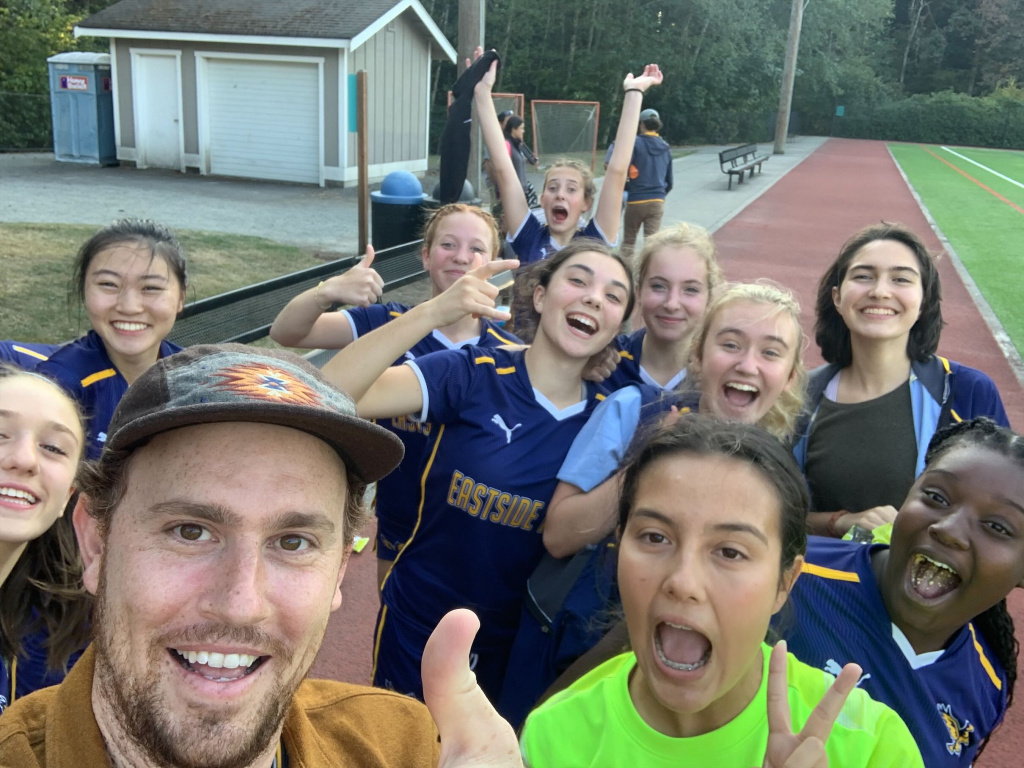
In a survey in preparation for the PDP, Adam Waltzer responded:
I’ve seen Jeff as an enthusiastic supporter of EPS arts and athletics. Students love to see him cheering them on and graciously appreciating their contributions to the community.
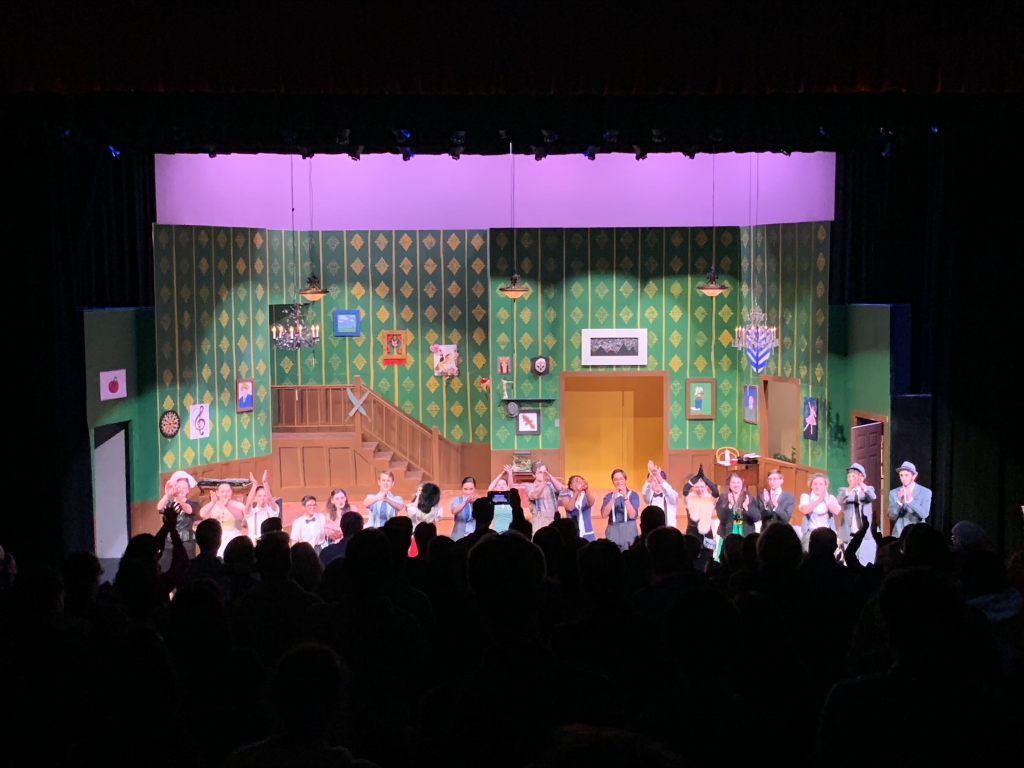
PDP survey response from Kim Eng:
Jeff’s is very engaged in the community. Not only is he a huge supporter of his students co-curricular activities (goes to many sporting events), he also coached track at EPS for a bit. He is an active listener, apparently a fantastic mentor, and when he talks with his colleagues and students, he is genuinely interested in getting to know them.
In addition to frequently attending school events and various student performances, I have also organized various mountain biking meet ups on the weekend and after school, coached track and field, served as the faculty sponsor the Community-Wide Book Club, and sponsored the Civic Engagement Club. At this point in their development, I want students to feel supported in their exploration and provide the space and opportunities to try something new or proceed with something they are passionate about.

Mountain biking has been central to my life for many years. It has taken me to some of the most unique landscapes across the western United States. It has been therapeutic during the darkest days. I am so grateful to have the support of the school to bring this passion to the students. With the wealth of resources littered across the I-90 corridor, we are spoiled with incredible terrain and opportunities for progression. My goal is to expose students to the world class trail networks that are accessible just a short drive into the Cascades, help to build community, and instill a drive and sense of confidence through skill development and progression.
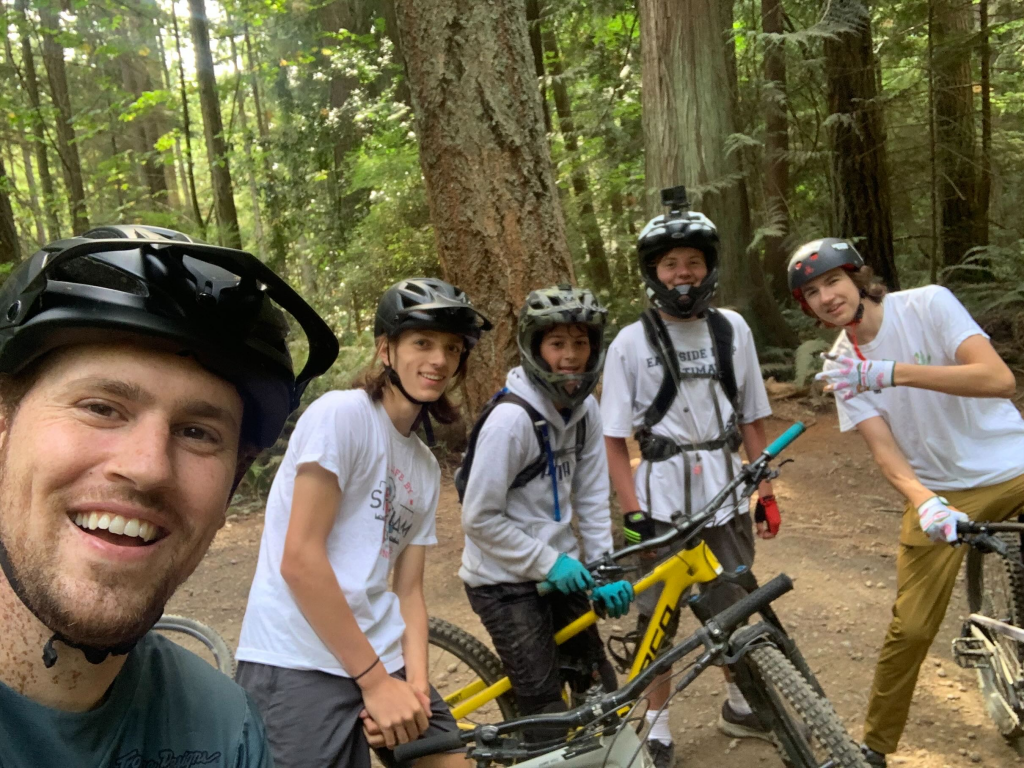
(3) participates visibly in the daily life of the school
In an era where we are continuously plugged in and thinking about the next item on our to-do list, we underestimate the power of being present. As a teacher, leader, mentor, sponsor, colleague and all of the other hats that we wear throughout the school day, we often have more on our plates than time will allow. It’s easy for our minds to drift and begin thinking about the meeting in 15 minutes or the email you forgot to respond to or the deadline for returning grades and feedback. While all of these tasks are necessary components of what we do as educators, the most essential part is how we connect.
During the spring trimester of 2021-2022, a colleague had to depart for personal reasons from EPS before the end of the school year. With about 7 or so weeks left in the trimester, I took on two additional sections of US History.

To be honest, I could not have predicted to be writing this letter to you today. But, I am glad that I have the chance to now. I have always loved your energy and teaching style in the classroom. I was so excited when you became our 6th… 7th… 8th…? Teacher of the year, and I am glad you decided to stick around! Huge thanks to you for stepping up to save the American History department! I admire your dedication to us, the students, and how you facilitate the best possible history experience everyday. You have such a fantastic ability to connect to your students which adds more comfort to my life in the classroom. Also, you give the best and most constructive feedback on projects, which has helped me grow as a writer in history. You are such a vital person on the EPS campus, and I could not imagine this school without thinking of you in the history classroom. You also have this crazy ability to keep track of all the students names so well, which I am mega impressed by. Everything you do goes to show how deeply you care for us on a daily. Thank you for all the time you have put into making the end of the year great for our American History class. I hope you have a wonderful summer with your partner and dog! I am excited to hear all about it when we get back in the fall! Cheers to an international EBC trip next year, fingers crossed for you!
Thank you a hundred times over,
Ella Hallman-Luhn
In a survey sent to colleagues in preparation for my PDP, Caitlin McLane responded:
You are awesome with the students. You jump right in and get to know them. You realize that learning cannot happen unless you know the whole student. You model a positive attitude, a warm and inclusive approach to teaching, and you work collaboratively to improve your courses each year.
During the height of the pandemic and teaching remote, aside from the limitations of teaching via Microsoft Teams, what I was really missing were the interactions that happen with students and colleagues outside of the classroom. When interviewing at EPS in the spring of 2019, one of the key characteristics that stood out to me was the vibrancy of the community throughout the campus. There was an energy during the passing periods that was enthralling, but it was not the cold, fast paced, impersonal rush of New York City–there was a palpable excitement and joy. I enjoy stopping by the various TALI porches to check-in with students, share in jokes and laughter, and get updates on college applications or extracurriculars. These seemingly less significant interactions provide insight into the broader student experience at EPS. I get to hear about what they are learning or the projects they are working on in other courses, their stressors, monumental events like passing their driving tests, and other programs/events they are participating in. One of my favorite aspects of the 2022-2023 school year has been the work that Ginger, Ed, and Luke have been putting in with the music showcases each week. I admire their dedication to providing space for our students to perform and appreciate the value it adds to our school community. Students assemble in the TALI atrium or around the railing on the second and third floors to see their peers’ 3-5 minute result of hours of practice. It has brought the EPS community closer and enriched the daily experience of being back on campus. I always stop whatever it is I am doing and head to the railing of the third floor to watch and applaud.
I look forward to breakfast each day not just because of Javier’s perfectly fried potatoes and tangy salsa verde, but because it allows me time to connect and strengthen my relationships with my colleagues. This is the largest faculty and staff I have been a member of and congregating over breakfast and lunch in the LPC allows me to get to know the people I may not interact with on a regular basis like my in discipline, grade level team, or office mates. Building strong relationships are the foundation of a collaborative culture–it builds trust, comfort, and allows for alignment of values and objectives. I’ve both been the beneficiary of this and hope to contribute to it as well.
In my PDP survey, John Kaminsky responded:
Jeff is one of the colleagues I most rely on. He is always willing to help out, even if it just to give advice to a math teacher on how to grade the first paper he ever assigned. Similar to how the students view him, I think Jeff is highly regarded by the faculty, both for his insight into students and his teacher acumen.
I have also served as a judge during multiple EagleCons and Winter Wars, promoted and hosted various events like the Community-Wide Book Club, sponsored the Civic Engagement Club, facilitated with Dr. Stegeman a seminar on Indigenous Issues in Latin America each year, & mentored multiple independent studies each year ranging from international relations between Iran and the US to pedagogic theory to the history of the United States Supreme Court.

Even Portland-Seattle rivals can find common ground–love for David Fierce!
I owe a lot to David Fierce. He and I immediately formed a connection during my interview in 2019. We swapped some different teaching strategies and classroom activities. He allowed me to participate in and facilitate a discussion as I observed his US History section. He advocated on my behalf to Dr. Macaluso when it appeared there was not going to be an open position initially. Once I joined EPS the following year, David served as my mentor and co-planned US History with McLane and I. When we were remote, David and I went hiking on a frequent basis. When we began returning to campus, I could not imagine EPS without David Fierce. With the creation of Fierce Fridays, hopefully this small homage continues to keep his spirit on the EPS campus.
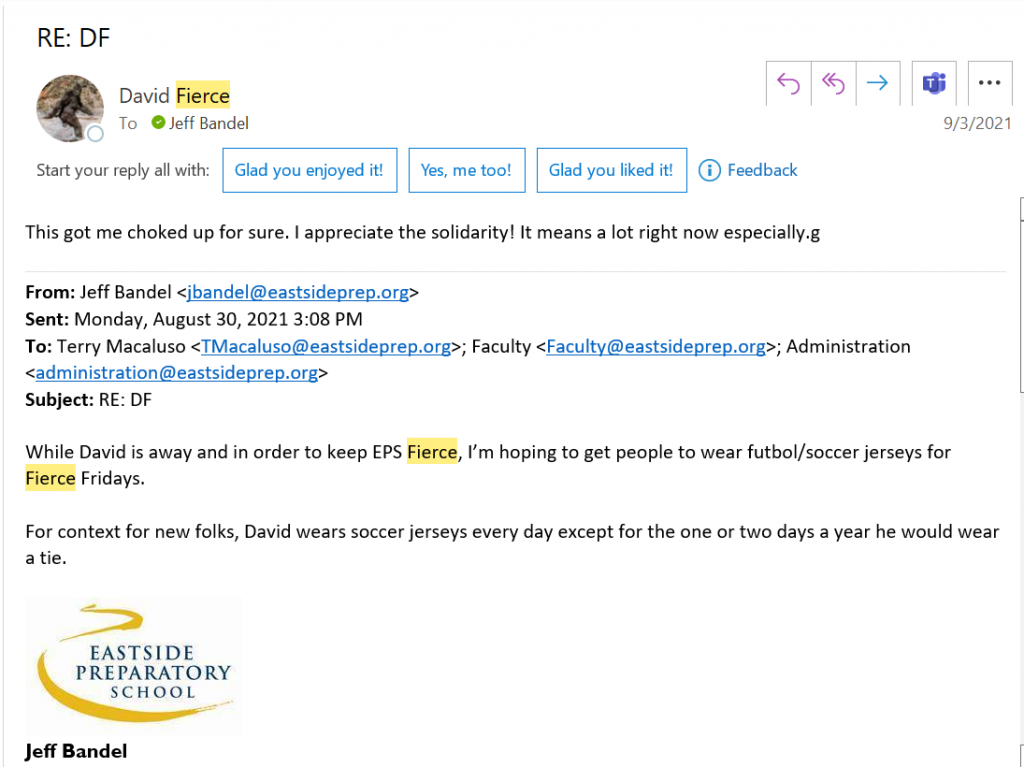
(4) recognizes and supports diversity in all its forms
My teaching career began in a much different context from Eastside Preparatory School. My student teaching and first six years of teaching was primarily in historically marginalized communities of color. Focus on diversity was centered on the identities and experiences of my students with an acute focus on race and ethnicity as well as my own racial identity, power dynamics within the classroom, and epistemic authority. There was also focus on English language acquisition within the large population of ELLs.
In response to a question concerning my practice and diversity, Caitlin McLane added:
Creating lessons and assessments that target a wide range of learners and skills (ex: Podcast assignment, the “staircase to freedom” primary source analysis). You put in the effort to understand the context of each kid in the classroom. You partner with learning support often to get to know a student.
As a history teacher, it offers a more seamless platform to recognize and support diversity, to construct a curriculum in which students can see themselves represented, and to examine who has power and privilege in various contexts. Teaching at Eastside Preparatory School has helped to evolve how I understand and emphasize diversity. Due to my earlier years working in schools in which the students have historically been underserved and not provided the same opportunities as some of their more privileged peers, I keep in mind and advocate for students who may tend to struggle.
In response to a question concerning my practice and diversity, Elena Olsen added:
In my experience partner-teaching with Jeff and being a humanities colleague, he works tirelessly to recognize and support diversity in all its forms, whether that means working individually with students to support their learning profile and needs or doing the research and self-education necessary to bring ever-more diverse voices into his social science curricula. Once, I talked with Jeff about not wanting to let go of a text in one of our paired 9th-grade lit-social science courses, even though it didn’t fit with the social science topic, because it was a text from the perspective of and entirely focused on African womens’ experience. He distinguished himself by being open to keeping the text in the literature section and trying to find a way to make the social science side fit with it, when others had shut down that possibility.
Additionally, another focus of mine has been acting as a role model to our young men. In opportunities of vulnerability and sharing, I have not held back my tears and allowed myself to get choked up and cry in front of the entire 9th grade last year during a community building activity. It is my hope to model a masculinity that is not limited to reacting with anger and aggression, that being in tune with my feelings does not come at the expense of my masculinity, and interests and hobbies can be enjoyed regardless of gender. On Fierce Fridays, I typically wear a Portland Thorns jersey, Portland’s NWSL club. When Adam Waltzer had growing concerns of how some of his athletes were behaving and intended to address this with his team, he invited several of the male faculty members to be present, which I made sure to be a present for and offer my support.
On a PDP survey, Alex Langer responded:
Jeff works hard especially with some of our younger male students to be a good role model, to call them out when necessary, and talk with them about why diversity in all forms is important. When I was having issues with a student, Jeff sat down with me and the EICL coordinators to work on a solution.
One of the contributions I am most proud of is assisting in the development and continuation of the Community-Wide Book Club. In 2020, Eliana Swai (’21) and Dana Hoballah (’21) proposed an idea of a community wide book club to me. Their hope was to create opportunities throughout our year of remote learning to bring people together and preserve the tight knit community of EPS. We’ve brought middle schoolers, upper schoolers, faculty members, parents, and alumni together to discuss five different books now with three more sessions planned for the 2022-2023 school year. Eliana and Dana helped recruit new student leaders to continue their efforts with Bohan Shakes (’22) and Danny Brambila-Diaz (’23) co-leading during the 2021-2022 school year. This year, I will be working with Danny and Caren Ensing (’23) with our first book club meeting on Dominicana in early December. As initially conceived with Dana and Eliana, our book club project was an opportunity to elevate voices and experiences of authors of color. Our earliest planning meetings were in the backdrop of the racial reckoning the US was experiencing in the aftermath of the George Floyd murder and Black Lives Matter demonstrations. This year we have decided to have a three-part series on the immigrant experience–something quintessential to the broader American experience but also divisive within our political discourse.

